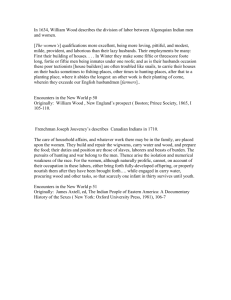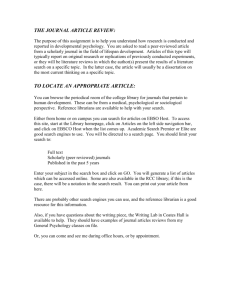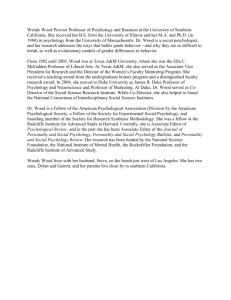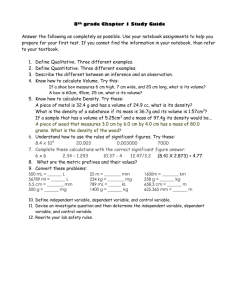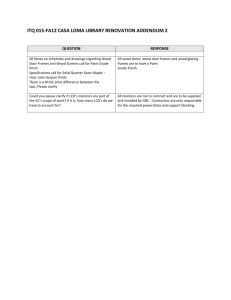Figure 6.1 The Processes Required for Remembering
advertisement
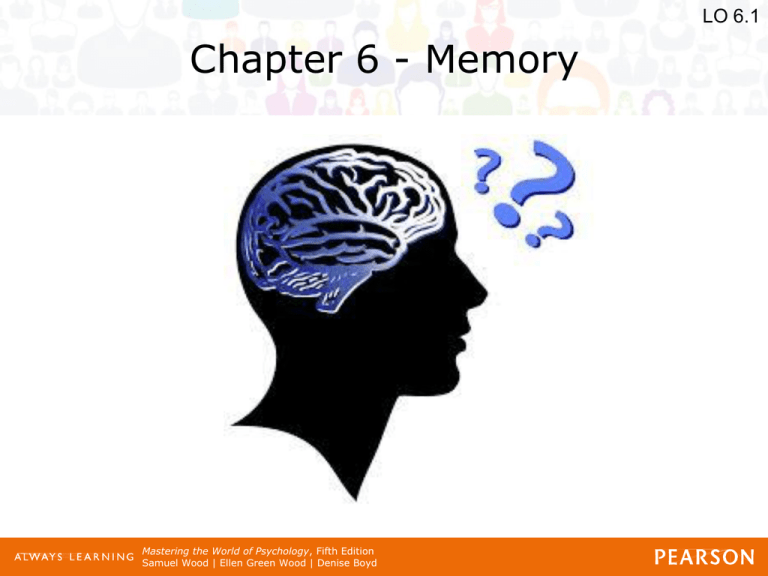
LO 6.1 Chapter 6 - Memory Mastering the World of Psychology, Fifth Edition Samuel Wood | Ellen Green Wood | Denise Boyd LO 6.1 The Structure of Human Memory: What is Memory? • Memory – a cognitive process that includes the encoding, storage, and retrieval of information Mastering the World of Psychology, Fifth Edition Samuel Wood | Ellen Green Wood | Denise Boyd Figure 6.1 The Processes Required for Remembering The act of remembering requires successful completion of all three of these processes: encoding, storage, and retrieval. Mastering the World of Psychology, Fifth Edition Samuel Wood | Ellen Green Wood | Denise Boyd Figure 6.2 Characteristics of and Processes involved in the Three Memory Systems Proposed by Atkinson and Shiffrin The three memory systems differ in what and how much they hold and for how long they store it. Mastering the World of Psychology, Fifth Edition Samuel Wood | Ellen Green Wood | Denise Boyd LO 6.2 The Structure of Human Memory: Sensory Memory • Briefly holds information from the senses – visual information: for a fraction of a second – auditory information: up to 2 seconds Mastering the World of Psychology, Fifth Edition Samuel Wood | Ellen Green Wood | Denise Boyd Figure 6.2 Characteristics of and Processes involved in the Three Memory Systems Proposed by Atkinson and Shiffrin The three memory systems differ in what and how much they hold and for how long they store it. Mastering the World of Psychology, Fifth Edition Samuel Wood | Ellen Green Wood | Denise Boyd The Structure of Human Memory: Short-Term Memory LO 6.3 • Capacity – seven (plus or minus two) items for less than thirty seconds without rehearsal • Also called working memory – STM acts as a workspace for carrying out mental activity Mastering the World of Psychology, Fifth Edition Samuel Wood | Ellen Green Wood | Denise Boyd The Structure of Human Memory: Short-Term Memory (STM) LO 6.3 • Displacement – occurs when STM is full – new incoming item pushes out an existing item • Chunking – grouping bits of information into larger units Mastering the World of Psychology, Fifth Edition Samuel Wood | Ellen Green Wood | Denise Boyd The Structure of Human Memory: Short-Term Memory (STM) LO 6.3 • Rehearsal – repeating information to maintain it in STM maintenance rehearsal – repeating information until stored in LTM elaborative rehearsal – linking new information to that already known Mastering the World of Psychology, Fifth Edition Samuel Wood | Ellen Green Wood | Denise Boyd LO 6.3 Short-Term Memory: Levels of Processing in Working Memory • Maintenance Rehearsal – "shallow" processing – encoding based on superficial features of information • Elaborative Rehearsal – "deep" processing – encoding based on the meaning of information Mastering the World of Psychology, Fifth Edition Samuel Wood | Ellen Green Wood | Denise Boyd LO 6.4 The Structure of Human Memory: Long-Term Memory (LTM) • Virtually unlimited capacity • Contains vast stores of a person's permanent or relatively permanent memories • Main Subsystems of LTM – Declarative memory – Non-declarative memory Mastering the World of Psychology, Fifth Edition Samuel Wood | Ellen Green Wood | Denise Boyd Figure 6.3 Subsystems of Long-Term Memory Declarative memory can be divided into two subsystems: episodic memory, which stores memories of personally experienced events, and semantic memory, which stores facts and information. Nondeclarative memory consists of motor skills acquired through repetitive practice and simple classically conditioned responses. Mastering the World of Psychology, Fifth Edition Samuel Wood | Ellen Green Wood | Denise Boyd Long-Term Memory: Declarative Memory • Stores facts, information, personal life events – Episodic Memory records events as they have been subjectively experienced – Semantic Memory stores general knowledge or objective facts and information Mastering the World of Psychology, Fifth Edition Samuel Wood | Ellen Green Wood | Denise Boyd LO 6.4 Long-Term Memory: Non-Declarative Memory • Also called implicit memory • Stores motor skills, habits, and simple classically conditioned responses Mastering the World of Psychology, Fifth Edition Samuel Wood | Ellen Green Wood | Denise Boyd LO 6.4 A Closer Look at Retrieval: Measuring Retrieval • Recall – task in which a person must produce required information by searching memory • Retrieval Cue – any stimulus or bit of information that aids in retrieving particular information from long-term memory Mastering the World of Psychology, Fifth Edition Samuel Wood | Ellen Green Wood | Denise Boyd LO 6.5 A Closer Look at Retrieval: Measuring Retrieval LO 6.5 • Recognition – identify material as familiar or as having been encountered before • Relearning Method – measure of memory – Retention is expressed as the percentage of time saved when material is relearned compared with the time required to learn the material originally. Mastering the World of Psychology, Fifth Edition Samuel Wood | Ellen Green Wood | Denise Boyd LO 6.8 Remembering Remembering as as Reconstruction: Reconstruction: Source, Source Flashbulb, Flashbulb and and Autobiographical Autobiographical Memories Memories • Source Memory – a recollection of the circumstances in which a memory was formed – Most memories do not include sources. – source monitoring practice of intentionally keeping track of the sources of incoming information necessary for encoding Mastering the World of Psychology, Fifth Edition Samuel Wood | Ellen Green Wood | Denise Boyd LO 6.8 Remembering as Reconstruction: Source, Flashbulb, and Autobiographical Memories • Flashbulb Memories – memories for shocking, emotionprovoking events – include information about the source from which the information was acquired – reconstructive in nature Mastering the World of Psychology, Fifth Edition Samuel Wood | Ellen Green Wood | Denise Boyd LO 6.8 Remembering as Reconstruction: Source, Flashbulb, and Autobiographical Memories • Autobiographical Memories – recollections that include an account of the events of person's own life – reconstructive in nature and include factual, emotional, and interpretive information Mastering the World of Psychology, Fifth Edition Samuel Wood | Ellen Green Wood | Denise Boyd LO 6.8 Remembering as Reconstruction: Source, Flashbulb, and Autobiographical Memories • Autobiographical Memories – positive bias Pleasant autobiographical memories are more easily recalled than unpleasant ones. Memories of unpleasant events become more emotionally positive over time. Mastering the World of Psychology, Fifth Edition Samuel Wood | Ellen Green Wood | Denise Boyd LO 6.9 Influences on Reconstructive Memory • Expertise – possessing extensive background knowledge that is relevant to a reconstructive memory task • Culture – may influence ability to remember certain kinds of material Mastering the World of Psychology, Fifth Edition Samuel Wood | Ellen Green Wood | Denise Boyd LO 6.9 Influences on Reconstructive Memory • Culture – Elders of the Iatmul people of New Guinea exhibit impressive memory for the oral history of their people. – The Asur people of India have exceptional memory for locations. Mastering the World of Psychology, Fifth Edition Samuel Wood | Ellen Green Wood | Denise Boyd Figure 6.5 Ebbinghaus’s Curve of Forgetting After memorizing lists of nonsense syllables similar to those at left, Ebbinghaus measured his retention after varying intervals of time using the relearning method. Forgetting was most rapid at first, as shown by his retention of only 58% after 20 minutes and 44% after 1 hour. Then, the rate of forgetting tapered off, with a retention of 34% after 1 day, 25% after 6 days, and 21% after 31 days. Source: Data from Ebbinghaus (1885/1964, 1913). Mastering the World of Psychology, Fifth Edition Samuel Wood | Ellen Green Wood | Denise Boyd LO 6.10 Forgetting: Ebbinghaus and the Curve of Forgetting • Learned and relearned more than 1,200 lists of nonsense syllables to discover how rapidly forgetting occurs • Curve of Forgetting – Forgetting tapers off after a period of rapid information loss immediately following learning. – Meaningful material is forgotten more slowly, encoded more deeply. Mastering the World of Psychology, Fifth Edition Samuel Wood | Ellen Green Wood | Denise Boyd Forgetting: Why Do We Forget? LO 6.11 • Encoding Failure – occurs when information was never put into long-term memory – Can you recognize the real penny? Few people can recognize the accurate drawing of the penny. Mastering the World of Psychology, Fifth Edition Samuel Wood | Ellen Green Wood | Denise Boyd Forgetting: Why Do We Forget? • Decay Theory – Memories, if not used, fade with time and eventually disappear. – Decay does not appear in long-term memories. Mastering the World of Psychology, Fifth Edition Samuel Wood | Ellen Green Wood | Denise Boyd LO 6.11 Figure 6.7 Retroactive and Proactive interference As shown in Example 1, retroactive interference occurs when new learning hinders the ability to recall information learned previously. As shown in Example 2, proactive interference occurs when prior learning hinders new learning. Mastering the World of Psychology, Fifth Edition Samuel Wood | Ellen Green Wood | Denise Boyd Forgetting: Interference • Proactive Interference – Information already stored in memory interferes with remembering newer information. • Retroactive Interference – New learning interferes with remembering previously learned information. Mastering the World of Psychology, Fifth Edition Samuel Wood | Ellen Green Wood | Denise Boyd LO 6.11 LO 6.11 Why Do We Forget? • Consolidation Failure – disruption in the consolidation process that prevents long-term memory from forming • Motivated Forgetting – suppression or repression in an effort to protect oneself from material that is painful, frightening, or otherwise unpleasant Mastering the World of Psychology, Fifth Edition Samuel Wood | Ellen Green Wood | Denise Boyd LO 6.11 Why Do We Forget? • Prospective Forgetting – not remembering to carry out some intended action – most likely to forget action perceived as unpleasant Mastering the World of Psychology, Fifth Edition Samuel Wood | Ellen Green Wood | Denise Boyd LO 6.11 Why Do We Forget? • Retrieval Failure – not remembering something one is certain of knowing – tip-of-the-tongue (TOT) phenomenon knowing information has been learned but being unable to retrieve it Mastering the World of Psychology, Fifth Edition Samuel Wood | Ellen Green Wood | Denise Boyd Forgetting Mastering the World of Psychology, Fifth Edition Samuel Wood | Ellen Green Wood | Denise Boyd LO 6.12 Biology and Memory: The Hippocampus and Hippocampal Region • Hippocampus – plays an important role in forming episodic memories – Formation of semantic memories involves the hippocampus and parts of the hippocampal region. Mastering the World of Psychology, Fifth Edition Samuel Wood | Ellen Green Wood | Denise Boyd LO 6.12 Biology and Memory: The Hippocampus and Hippocampal Region • Hippocampus – The hippocampus is also involved in navigational skills. The posterior of hippocampus is larger in taxi drivers than in the general population. Mastering the World of Psychology, Fifth Edition Samuel Wood | Ellen Green Wood | Denise Boyd Biology and Memory: Neuronal Changes and Memory LO 6.13 • Long-Term Potentiation (LTP) – an increase in the efficiency of neural transmission at the synapse that lasts for hours or longer – does not take place unless both sending and receiving neurons are activated at the same time – Blocking LTP interferes with learning. long-term memories not formed Mastering the World of Psychology, Fifth Edition Samuel Wood | Ellen Green Wood | Denise Boyd LO 6.14 Hormones and Memory • Our strongest and most lasting memories are usually fueled by emotion. • Epinephrine (adrenalin) and norepinephrine (noradrenalin) activate the amygdala. – help imprint powerful, enduring memories for threatening events – "fight-or-flight response" Mastering the World of Psychology, Fifth Edition Samuel Wood | Ellen Green Wood | Denise Boyd LO 6.14 Hormones and Memory • Excessive levels of cortisol can interfere with memory. • Estrogen appears to improve working memory efficiency in pre-menopausal women. – Post-menopausal estrogen replacement may increase the risk of dementia. – More research concerning the treatment of age-related memory loss is needed. Mastering the World of Psychology, Fifth Edition Samuel Wood | Ellen Green Wood | Denise Boyd LO 6.15 Memory Loss • Amnesia – partial or complete loss of memory – due to loss of consciousness, brain damage, or some psychological cause • Anterograde Amnesia – inability to form new long-term memories – case of H. M. Mastering the World of Psychology, Fifth Edition Samuel Wood | Ellen Green Wood | Denise Boyd LO 6.15 Memory Loss • Retrograde Amnesia – loss of memory for experiences that occurred shortly before a loss of consciousness Mastering the World of Psychology, Fifth Edition Samuel Wood | Ellen Green Wood | Denise Boyd LO 6.15 Memory Loss • Dementia – mental deterioration characterized by impaired memory and intellect – altered personality and behavior – Individuals with dementia can lose episodic and semantic memories. – can result from cerebral arteriosclerosis, chronic alcoholism, strokes Mastering the World of Psychology, Fifth Edition Samuel Wood | Ellen Green Wood | Denise Boyd LO 6.15 Memory Loss • Alzheimer's Disease – a form of dementia caused by degeneration of brain cells – High IQ plus lifelong intellectual activity may delay or lessen Alzheimer symptoms. – A new drug, bapineuzumab, prevents the development of neurofibrillary tangles and shows promise for the treatment of Alzheimer's. Mastering the World of Psychology, Fifth Edition Samuel Wood | Ellen Green Wood | Denise Boyd LO 6.16 Memory in Legal and Therapeutic Settings: Eyewitness Testimony • Human memory is reconstructive. – Eyewitness testimony is highly subject to error. – should always be viewed with caution (Loftus, 1979) • The physiological stress of being a crime victim creates memory gaps. Mastering the World of Psychology, Fifth Edition Samuel Wood | Ellen Green Wood | Denise Boyd LO 6.16 Memory in Legal and Therapeutic Settings: Eyewitness Testimony • Misinformation Effect – erroneous recollections of witnessed events – results from information learned after the fact Mastering the World of Psychology, Fifth Edition Samuel Wood | Ellen Green Wood | Denise Boyd LO 6.16 Memory in Legal and Therapeutic Settings: Eyewitness Testimony • Factors Affecting Testimony Reliability – Viewing a photograph of a suspect before seeing a lineup – Viewing members of lineup all at the same time, rather than one at a time – The perpetrator's race is different from that of the witness. – Weapon used in the crime – Leading questions used Mastering the World of Psychology, Fifth Edition Samuel Wood | Ellen Green Wood | Denise Boyd LO 6.17 Memory in Legal and Therapeutic Settings: The Repressed Memory Controversy • Repression – process by which traumatic memories are buried in the unconscious – Hypnosis and guided imagery are often used to help clients recover repressed memories of childhood sexual abuse. – Critics argue that therapists sometimes implant false memories in clients. Mastering the World of Psychology, Fifth Edition Samuel Wood | Ellen Green Wood | Denise Boyd LO 6.17 Memory in Legal and Therapeutic Settings: The Repressed Memory Controversy • Repression – Imagining a fictitious event can lead to a false memory of the event. • Infantile Amnesia – relative inability of older children and adults to recall events from the first few years of life – hippocampus in brain not fully developed Mastering the World of Psychology, Fifth Edition Samuel Wood | Ellen Green Wood | Denise Boyd
